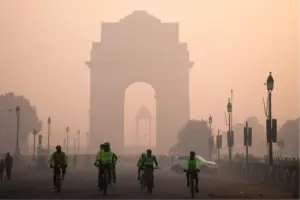
Following the crash of Air India flight 171 in Ahmedabad that killed 275 people, fear of flying has spiked across India, driving demand for therapy programs aimed at helping passengers overcome travel anxiety, news agency Reuters reported.
Retired Air Force Wing Commander Dinesh K., who runs Cockpit Vista, a Bengaluru-based centre that helps people manage their fear of flying, said his program has seen a tenfold increase in enquiries. Previously averaging around 10 queries a month, Dinesh’s centre has received more than 100 since the crash. “Fear of flying is mostly about unfamiliar sensations during a flight. Exposure therapy works best,” Dinesh explained.
Also Read | Insomnia, anxiety, and depression may share common brain patterns, study shows
A widely circulated 59-second CCTV video showing the Boeing 787-8 Dreamliner crash has further amplified public fear. According to mental health professionals, patients are reporting insomnia, obsessive behaviour around flight tracking, and intense anxiety about loved ones flying.
Psychologist Pankti Gohel noted that many people are now dealing with “debilitating anxiety” that disrupts their daily life. “Some clients constantly check flight apps or call family members until they’ve landed,” she said.
The aviation panic is also affecting consumer behaviour. Travel agencies have reported a rise in cancellations and unusual customer demands, including choosing flights based specifically on aircraft models. “People don’t want to hear about Dreamliners anymore,” said Ravi Gosain, president of the Indian Association of Tour Operators, which noted a 15–20% drop in flight bookings and up to 40% cancellations post-crash.
Some travellers, like 25-year-old Nidhi Bhatia from London, are now actively avoiding certain aircraft. “I flew Air India just a day before the crash. I’m bloody terrified now. I won’t fly if it’s a Boeing,” she told Reuters.
Globally, fatal air accidents remain rare. The International Civil Aviation Organization recorded only 1.87 accidents per million departures in 2023. But experts say high-visibility disasters, like the Ahmedabad crash, have an outsized psychological effect.
With safety fears mounting, experts emphasise the need for aviation transparency and mental health support to rebuild passenger confidence in the skies.








